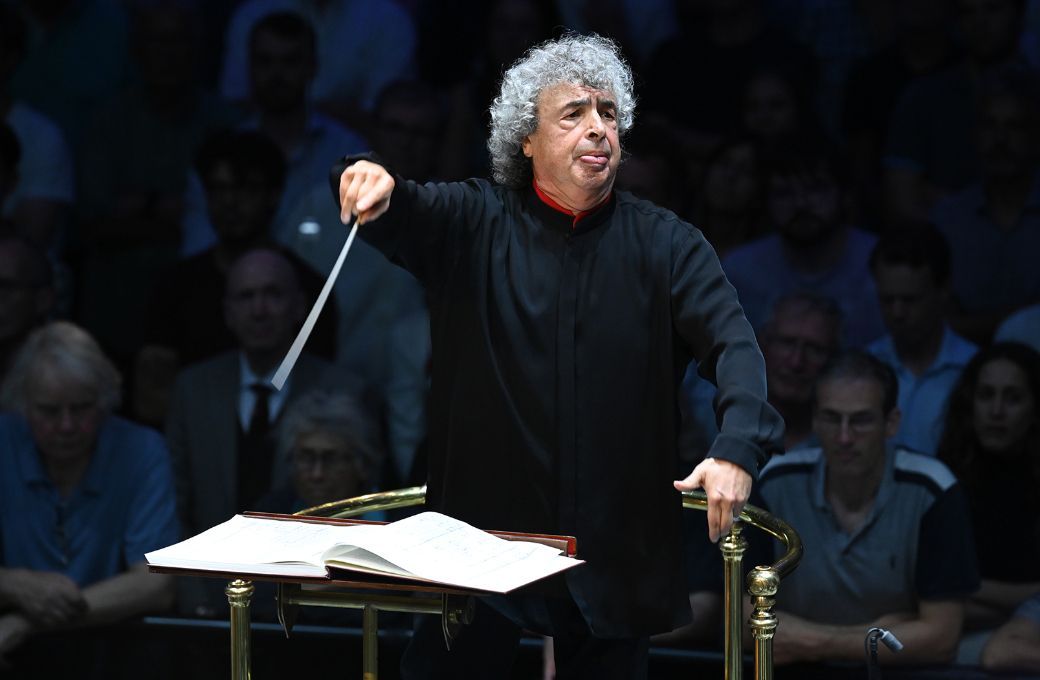In symphonic terms Number Eight does not always mean big. True, there is the gut-wrenching Shostakovich 8 and the gargantuan Mahler 8, but Beethoven and Dvořák’s own enumerations are mere slips in comparison. Nonetheless, Bruckner’s last completed symphony calls up all the associations one might have with that number: turned on its side it becomes the infinity symbol. Every performance of this “big beast” therefore needs to have a sense of scale, of something truly epic about it, in order to do justice to a conception that can easily fill an evening’s programme on its own.

This Bruckner 8 with the BBC Symphony Orchestra, conducted by Semyon Bychkov, was big from the start. Extra string desks provided the additional heft to match the towering ranks of four Wagner tubas as well as five horns, four trumpets, four trombones and a bass tuba. Not to mention the two harps, their only inclusion in a Bruckner symphony. Even in the loudest passages of all, you need to hear the strings. You did here, beautifully so. This was one of the virtues of Bychkov’s approach, with almost perfect balancing throughout the 82-minute duration, the only exceptions being an over-dramatic use of timpani, becoming quite manic at the start of the Finale, and the surprisingly reticent harps in the great Adagio. There is much to be said for the Royal Albert Hall as a performing space for Bruckner: the sound is able to open out properly without harshness from the brass (depending on the conductor), and yet woodwind soloists can still float their instrumental lines tellingly.
Bychkov’s view of the work was completely coherent. There was nothing disjointed or unsettling about it, no pointing up of the dissonances, no abrupt changes in tempo or sudden outbursts of anger from the brass, and therefore no chasms to peer into. This was Bruckner looking back into the 19th century rather than anticipating the 20th, the lyrical and poetic Schubert a close soulmate.
In the first two movements, the Moderato marking was uppermost in Bychkov’s mind, the oboe solo in that opening paragraph sounding consoling rather than plaintive, the strings, soft as sable, providing cushions of support. Somewhat surprisingly, the Scherzo sounded more like a purring pussycat than a terrier on the loose, oozing contentment, extending its powerful limbs gracefully but never showing its claws, the Danish concept of hygge a constant companion.
The Adagio, longest of the movements at 27 minutes here, was suitably slow and solemn. I frequently felt I was watching those awe-struck visitors to the Vatican, looking in pure wonderment at La Pietà. So there was certainly architecture in the sound, the marble glistening, each contour testament to master-craftsmanship. The danger though is that Bruckner’s heavenly music can sometimes become statuesque, if there are insufficient injections of life and energy. I’m not persuaded that Bychkov avoided this particular trap. The two big cymbal crashes towards the end should ideally be ear-shattering and an emotional release. But here the eyes simply remained wide-open in amazement. There was no quickening of the heart-rate. Serenity was all.
Günter Wand, whose Conducting Chair at the BBC Bychkov holds, was famous for expressing total disdain at the notion of adding any frankincense and myrrh to the mix in a Bruckner symphony. I’m sure Wand would have been nodding approval from afar. This was Bruckner the symphonist, shorn of any religious connotations. It engendered admiration but it did not stir my soul. Did the walls of Jericho come crashing down at the end, as they can do? No, because it simply wasn’t that kind of a performance.


